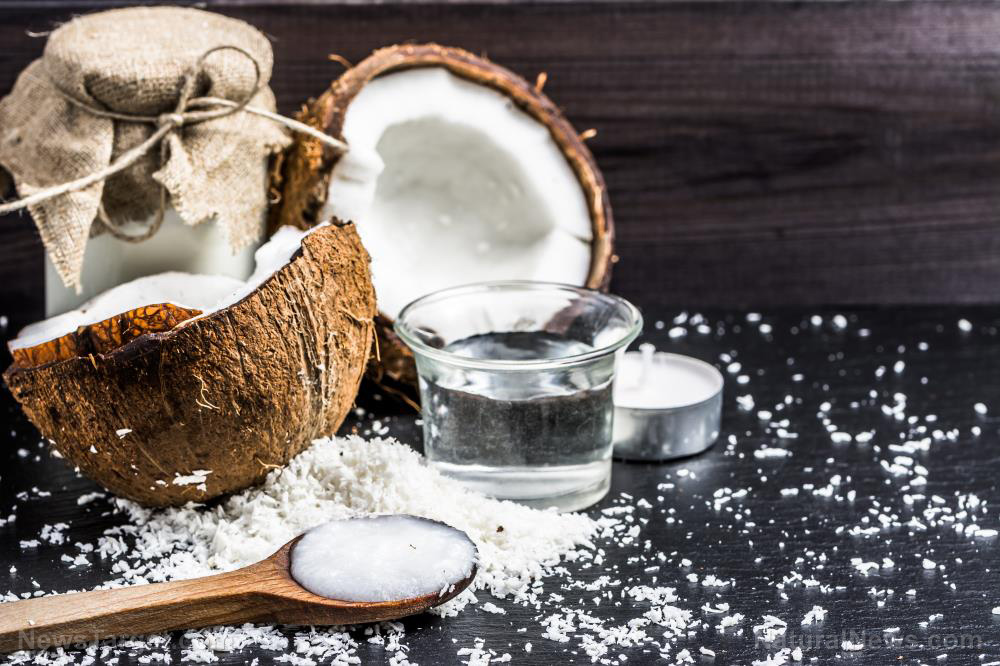Herbal additives such as cumin oil found to increase shelf life of fresh fish fillets
11/06/2018 / By Ralph Flores

Researchers from Firat University in Turkey have uncovered yet another use for black cumin (Nigella sativa), a plant widely used in both medicine and food. In their study, published in the journal Food Science and Technology, the team found that black cumin oil can be used as a natural preservative for extending the shelf life of food. In particular, they investigated how treating fish fillets with black cumin oil can affect its taste, chemical quality, and the number of microbes present during storage.
It’s worth noting that a lot of people love fish: According to the Food and Agriculture Organization, the world consumes at least 163 million tonnes of fish in a year. Putting them on dinner tables, however, is another problem — the biological composition of fish and other aquatic food sources makes them highly prone to spoilage — even under refrigeration. In the study, the researchers highlighted the need for natural ways to store fresh fish.
“Alternative sources of safe, effective and acceptable natural preservatives need to be explored,” they wrote in their report. “The use of natural antimicrobials such as organic acids, essential oils, plant extracts, and bacteriocins could be good alternatives to ensure food safety.”
The researchers also pointed out that using natural preservatives isn’t just for ensuring food safety. The use of natural preservatives, they added, could increase the economic value of fish and reduce energy costs spent during handling and storage. In particular, the team looked at black cumin, a spice commonly found in Mediterranean dishes — where it’s native. It’s an ingredient in a lot of dishes, including salads, bread, cheese, tea, and even coffee. It also has biological activities, and studies have shown the spice to have potent antioxidant, antibacterial, and antifungal properties. There are, however, limited studies that explored the potential of black cumin to be used as a preservative, especially for fish. In the study, researchers looked at how it can be used to preserve shabout (Barbus grypus) fillets — an economically viable fish found in the Euphrates and Tigris rivers in the Middle East — during cold storage.
100% organic essential oil sets now available for your home and personal care, including Rosemary, Oregano, Eucalyptus, Tea Tree, Clary Sage and more, all 100% organic and laboratory tested for safety. A multitude of uses, from stress reduction to topical first aid. See the complete listing here, and help support this news site.
For the study, the team used fish that was directly caught at the source then transported in ice boxes to ensure freshness. These were then gutted, filleted, and washed. The researchers then coated some of the fillets with black cumin oil, sealing them afterward and putting them in cold storage. The samples were tested in three-day intervals, with researchers looking at changes in microbiological and chemical parameters, taste, and pH levels.
Researchers found that while all samples exhibited a significant increase in the amount of bacteria present after three weeks in cold storage, the fillets treated with black cumin oil had a significantly slower rate of increase than that of the control group. In terms of taste, those that were treated with black cumin oil also fared better than that in the control group. According to researchers, similar effects were seen in earlier studies that used other plant extracts. (Related: Use spices to reduce risk of food poisoning: Rosemary and cloves found to be effective against microbial growth.)
The team concluded that black cumin oil can be used to improve the shelf life of fish with no adverse effects.
“[Adding] black cumin oil in fish fillets resulted in longer shelf life, [making] this method [a] simple, commercially [viable] and [safe alternative for preserving fish],” they added.
Learn more about natural food preservatives at Food.news.
Sources include:
Tagged Under: black cumin, Food Preservation, food science, food spoilage, Food storage, food supply, fresh fish, natural additives, preserving fish



















